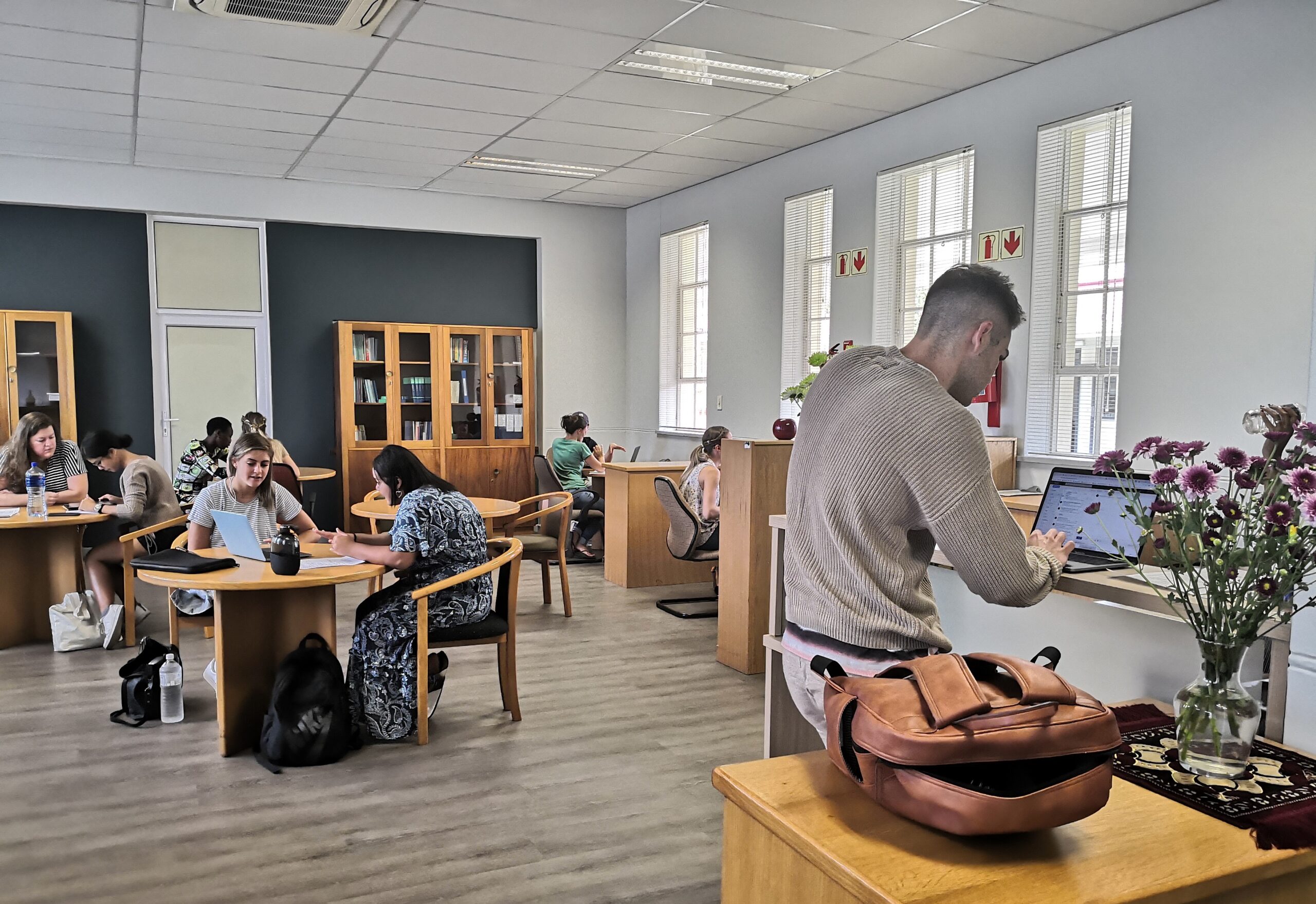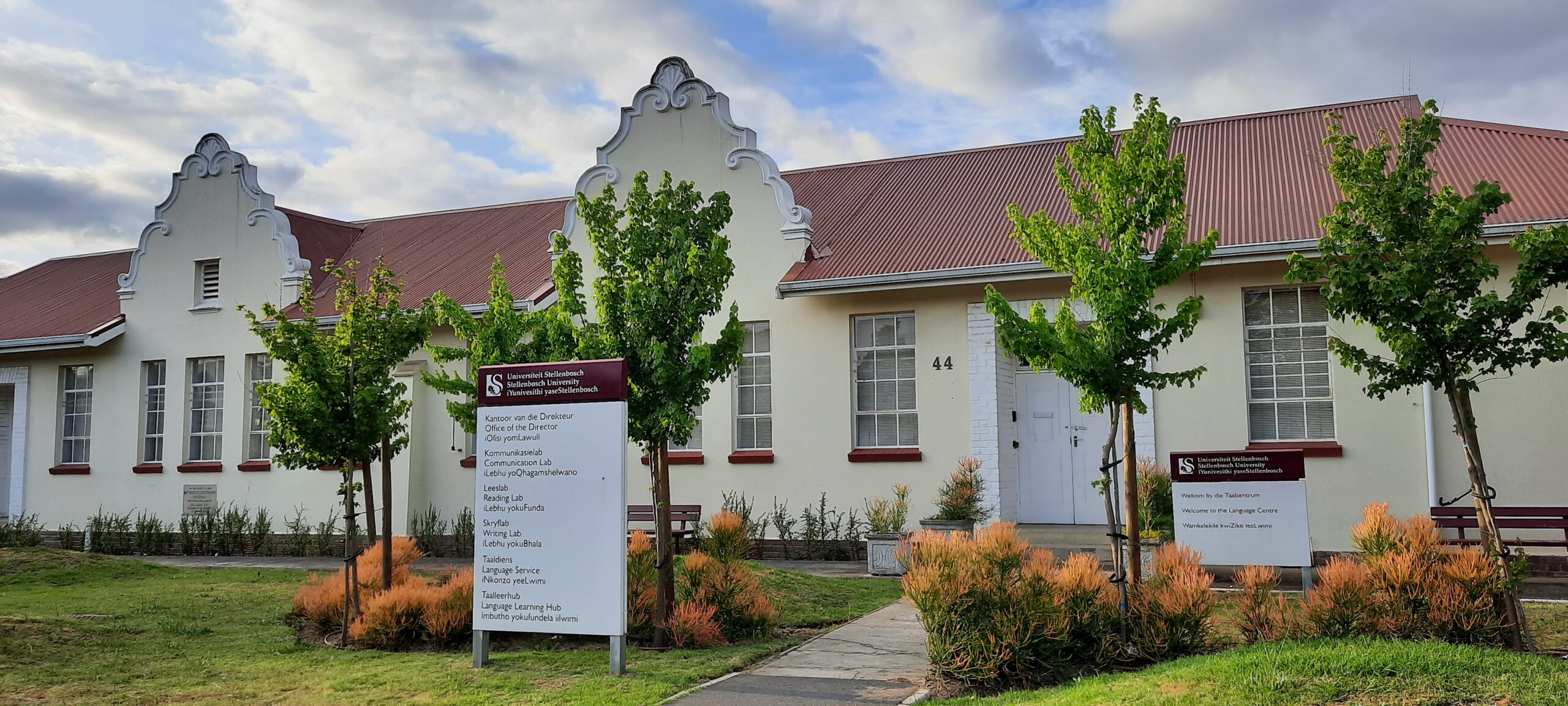Support Services

The Language Centre is a vibrant multilingual hub for students, staff and clients who are looking for language and communication assistance. We work collaboratively with you on your language journey. Our centre is home to experts in language learning and teaching, academic literacies and professional communication, translation, copy editing, interpreting and corporate communication. Visit our website, follow us on Facebook, Instagram and LinkedIn, or drop us a line at taalsentrum@sun.ac.za.
x
x
x
x
x
x
x
x


x
empty
empty tag
Why does the University have a language centre?
The Language Centre’s mandate is to offer language support to our students and clients, and to promote multilingualism. We do this in a variety of ways, from offering language and communication courses and academic literacies modules, to running a Writing Lab where you can get free writing tips and support, and a Reading Lab where you can learn to read better and faster. We also make available interpreting in class, and editing and translation services. During the pandemic, most of these services are available online if face-to-face contact is not advisable or possible.
Why would anyone want to be multilingual?
To be multilingual – that is, to be able to speak and understand more than two languages – will open up new worlds for you. Multilingual people tend to be better at checking out their environment and spotting misleading information. They also tend to make more rational decisions, have better problem-solving skills, multitask better, learn new skills faster, communicate more effectively and even write better. Multilingualism is basically a super power! It’s also one of the attributes the University would like you to have by the time you graduate.
How does the Language Centre support multilingualism?
The Language Centre offers several language short courses. You can learn to speak basic isiXhosa or Afrikaans with us, have a lot of fun in the process, and even be sponsored to do so if you’re lucky. Check out our Language Learning Hub, which offers creative ways to learn a new language. You could also improve your academic English with us. In addition, we offer academic literacies and professional communication modules in some faculties, which would help you to learn to speak ‘university’ and prepare you to communicate in a professional manner. If you’d like to do a degree in languages, you’ll need to check out the BA programmes in the Faculty of Arts.
I don’t speak ‘university’. Can you help with that?
The ability to write and read academic texts and have conversations about them is not something that comes naturally. It’s very much like learning a new language – a language that you possibly have never used before. At the Language Centre, we offer credit-bearing academic literacies and professional communication modules to support you to learn and use this new language – to learn to speak ‘university’ and to prepare you to communicate in a professional manner. We work together with the faculties to support you while you build your knowledge and learn how to learn.
Can you help me with my academic writing?
Absolutely. Our Writing Lab is a safe space where you can connect with a writing consultant about your academic writing. You may visit us as many times as you like, and our service is free. We also offer academic literacies and professional communication modules in most faculties, which would help you further to learn to speak ‘university’ and prepare you to communicate in a professional manner.
Can you help me with my academic reading?
Yes, we’d love to! Our Reading Lab offers you many ways to enhance your reading skills, from free short workshops to using ReadTheory, which provides online reading comprehension practice to students of all levels. We also work together with some faculties to have our service included in some courses. Some of these services are free, too.
Can I choose to study in either Afrikaans or English?
Yes, you can. You’ll need to check with the faculty where you’d like to study to find out what their language plan looks like, because that determines the languages in which subjects are offered. You could also make use of interpreting in class if that is available. We do offer academic literacies and professional communication modules in Afrikaans and English to help you transfer the skills you may be more comfortable with in one of those languages to your other subjects.
What’s the deal with interpreting in class?
We offer the option of simultaneous interpreting – that is when someone offers a spoken or signed translation of what someone else is saying while they’re saying it – in class. Your faculty’s language plan will determine whether interpreting in class would be an option for you. But you can always ask. We interpret into Afrikaans, English, isiXhosa and South African Sign Language – face to face or online, depending on the situation.
What else do you offer?
We offer communication short courses for people who are working and who want to upskill, so you needn’t be a University student to enrol for those. Have a look at what our Comms Lab offers – you could learn to do powerful presentations, learn to communicate successfully in the office or even sharpen your digital marketing skills. We also offer a great TEFL course, if you’d like to qualify to start teaching English as a foreign language, and you can do an IELTS preparation course with us if you need to take that exam to prove your English proficiency.
